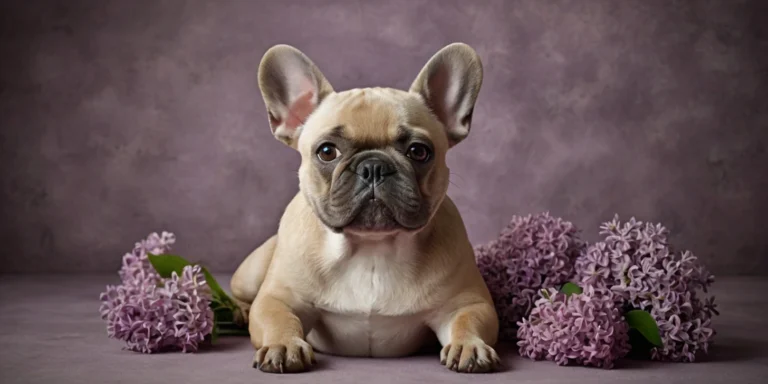Poodle Guide Everything You Need to Know 2025
Poodles, renowned for their elegant appearance, intelligence, and versatile charm, are a beloved breed that captures hearts with their curly coats and lively personalities, making them ideal companions for families, singles, or seniors. Available in Standard, Miniature, and Toy sizes, They are celebrated for their low-shedding coats and adaptability, thriving in various lifestyles from active households to cozy apartments. This comprehensive guide explores everything, including their characteristics, size variations, care needs, and where to find Poodles for sale or adoption, helping you decide if this iconic breed is the perfect addition to your home.
What Is a Poodle?
They are a purebred dog originating from Germany, initially bred as water retrievers, with their name derived from the German word “pudel,” meaning to splash in water. They come in three sizes: Standard (over 15 inches, 40–70 pounds), Miniature (10–15 inches, 10–20 pounds), and Toy (under 10 inches, 4–6 pounds), as defined by the American Kennel Club (AKC). Their dense, curly coats, which can be solid colors like black, white, apricot, or cream, or patterns like parti, are low-shedding, making them popular for allergy sufferers, per PuppySpot. Known for their intelligence and elegance, These Dogs are a top choice for pet owners.
Characteristics of Poodles
They are defined by a unique blend of traits that make them stand out:
- Appearance: Their curly, dense coats and graceful build give them a refined, regal look, often styled in iconic cuts like the Continental or Puppy Clip.
- Personality: These dogs are intelligent, alert, and sociable, with a playful streak balanced by a calm demeanor, per Hill’s Pet.
- Coat Types: Curly or corded coats are low-shedding but require regular grooming to prevent matting.
- Versatility: From show dogs to family pets, excel in agility, obedience, and therapy roles due to their trainability, as noted by the AKC.
Their adaptability makes suitable for urban apartments, family homes, or active outdoor lifestyles.
Poodle Sizes
They come in three distinct sizes, each with unique appeal:
- Standard: Over 15 inches tall, 40–70 pounds. Ideal for active owners with space, they excel in outdoor activities like hiking or retrieving.
- Miniature: 10–15 inches tall, 10–20 pounds. A versatile middle size, they suit apartments or homes with moderate activity levels.
- Toy: Under 10 inches tall, 4–6 pounds. Perfect for small spaces or as lap dogs, they’re ideal for less active owners or travel.
Choosing a size depends on your lifestyle, space, and activity level, as emphasized by the Poodle Club of America.
Care Needs for Poodles
Caring for Poodles involves meeting their needs for feeding, grooming, exercise, and health to ensure they thrive.
Feeding
Feed high-quality kibble tailored to their size and age:
- Puppies: 0.5–1.5 cups daily, split into 3–4 meals to support growth.
- Adults: 1–2.5 cups daily, split into 2 meals, adjusted for activity and size.
Monitor portions to prevent obesity, especially in Toy and Miniature Poodles, and provide fresh water. Avoid toxic foods like chocolate or grapes, per The Spruce Pets.
Grooming
They require regular grooming due to their curly coats:
- Brush daily with a slicker brush to prevent matting.
- Schedule professional trims every 4–6 weeks for cuts like the Puppy Clip or Teddy Bear.
- Clean ears weekly to prevent infections, trim nails monthly, and brush teeth 2–3 times weekly to avoid dental issues.
Grooming maintains their low-shedding appeal and prevents skin issues, as noted by Dogsintl.
Exercise
They need 30–60 minutes of daily activity, depending on size:
- Standard: Longer walks, runs, or agility training.
- Miniature/Toy: Shorter walks or indoor games like fetch with soft toys.
- All Sizes: Mental stimulation through puzzle toys or training keeps their sharp minds engaged.
Exercise supports their energetic nature and prevents boredom, per Hill’s Pet.
Health Considerations
They are generally healthy but may face breed-specific health issues:
- Hip Dysplasia: Common in Standards; regular screenings are key.
- Progressive Retinal Atrophy (PRA): An eye condition leading to blindness; genetic testing reduces risk.
- Addison’s Disease: A hormonal disorder; monitor for lethargy or vomiting.
- Bloat (Gastric Dilatation-Volvulus): Affects Standards; avoid rapid eating.
- Epilepsy: Seizures can occur; medication manages it.
With proper care, they live 10–18 years, with Toy and Miniature Poodles often outliving Standards, per Embarkvet.
Finding
Finding this pet for sale requires research to ensure a healthy, well-socialized pup.
Reputable Breeders
Look for breeders who:
- Health-test parents for PRA, hip dysplasia, and Addison’s disease.
- Socialize puppies early with people and environments.
- Provide health guarantees, like the 2-year warranty from PuppySpot.
- Offer transparency about puppy and parent health, allowing visits or video tours.
Breeders like those listed by the AKC Breeder Referral or Teacup Poodle Home prioritize health and socialization. Check for available litters or waitlists.
Adoption and Rescues
Adopting this Dog from a rescue or shelter is a rewarding option. Older puppies or adults often have known personalities, making them easier to match with your lifestyle. Platforms like Petfinder or Poodle-specific rescues (e.g., Poodle Rescue of Houston) list Poodles needing homes. Recent X posts highlight adoptable Toy Poodles in areas like California.
Online Marketplaces
Websites like Lancaster Puppies or Greenfield Puppies list Poodles for sale, but verify breeder credentials. Request health records and references to avoid puppy mills, as cautioned in Reddit discussions.
Regional Breeders
They are available across regions:
- Texas: Breeders like Namaste Bernedoodles (also offering Poodles) provide Toy and Miniature Poodles with shipping options.
- California: Local breeders offer Standards with health testing, per AKC listings.
- Illinois: Central Illinois Doodles includes Poodles with health warranties.
Search for local breeders to reduce puppy travel stress, and check reviews for legitimacy.
How to Choose a Reputable Breeder
Select a breeder who:
- Conducts genetic testing (OFA, Embark) for breed-specific conditions.
- Socializes puppies from 2–8 weeks, using programs like Puppy Culture, as seen with Wolf River Bernedoodles’ standards.
- Provides a health guarantee (1–2 years) and vet records.
- Allows facility visits or virtual tours, as offered by Home Trained Bernedoodles.
Avoid breeders with multiple litters, no health testing, or puppies sold before 8 weeks, as these suggest puppy mill practices.
Questions to Ask When Buying this Pet for Sale
Ask breeders:
- What health tests are performed on the parents?
- How are puppies socialized?
- Can I see the facility or meet the parents?
- What health guarantees are provided?
- What is the puppy’s expected adult size?
Reputable breeders, like those on PuppySpot, provide clear answers and encourage engagement.
Coat Colors and Patterns
They boast diverse coats:
- Solid Colors: Black, white, apricot, cream, blue, or silver.
- Patterns: Parti (two-tone), phantom, or sable, popular in show dogs.
- Coat Types: Curly (dense, common) or corded (rare, rope-like).
Coat type affects grooming needs, with curly coats requiring more care, per Dogsintl.
Training and Socializing
These Dogs intelligence makes training enjoyable. Start with commands like “sit” or “stay” using positive reinforcement (treats or praise). Keep sessions short (5–15 minutes) to maintain focus, and avoid harsh methods due to their sensitivity, per Daily Paws. Socialize puppies at 2–8 weeks with people, pets, and environments to build confidence, as advised by the AKC.
Living Requirements
Tese Dogs adapt to various settings:
- Apartments: Toy and Miniature Poodles thrive with regular walks.
- Family Homes: Standards suit active households with space for play.
- Seniors: Toy Poodles are ideal for less active owners, offering companionship.
Their low-shedding coats suit allergy-prone homes, but they need regular interaction, per Purina.
Fun Facts
- Show Stars: They dominate dog shows with their elegant clips.
- Smartest Breed: Ranked among the top intelligent breeds by the AKC.
- Water Dogs: Originally bred for retrieving, they love swimming.
- Versatile Companions: Excel as therapy, service, or family pets.
Tips for Poodle Owners
- Prepare a cozy space with a crate, bed, and toys.
- Invest in a slicker brush, leash, and quality kibble.
- Stick to a routine for feeding, exercise, and grooming.
- Join Poodle communities for tips and playdates.
- Start socialization and training early for a well-adjusted dog.
Conclusion
Poodles are a fantastic choice for those seeking an intelligent, low-shedding companion with a versatile charm. Whether you choose a Standard, Miniature, or Toy Poodle, their adaptability suits various lifestyles, from apartments to family homes. By selecting a reputable breeder or rescue, providing proper care, and fostering socialization, you’ll enjoy a loyal, joyful Poodle for years. Ready to find a Poodle? Start exploring trusted sources today!







